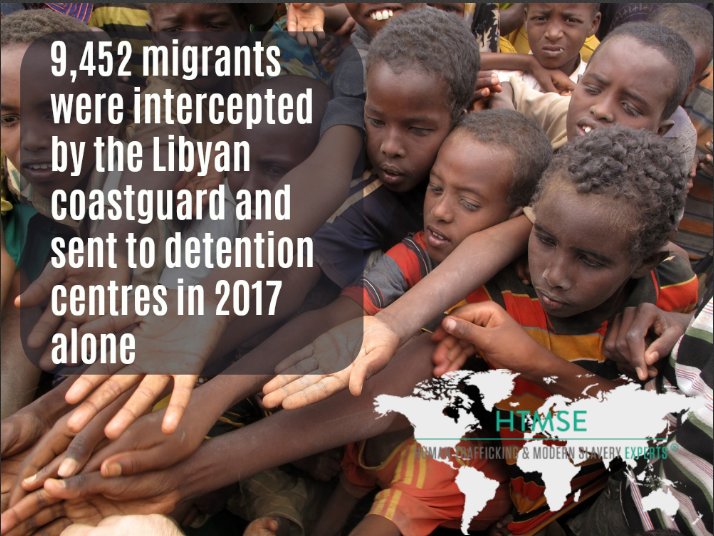
Driven by poverty, thousands of migrants have attempted the perilous journey from Africa to Europe across the Mediterranean. Despite the traditional focus on deaths at sea – claiming over 2,257 lives in the first half of 2017 alone –, there is increasing evidence that transit on dry land can also be fatal. Several reports have confirmed that stranded migrants are deprived of food and drink, sold for as little as $400 in discreet warehouse auctions, and are customarily subjected to torture and abuse by their captors. Following the clampdown on sea crossings by the European Union in an attempt to stem flows to the continent, 19,452 individuals have been intercepted by the Libyan coastguard and sent to detention centres in 2017 alone, many of whom have fallen prey to transnational criminal networks. The unparalleled concentration of ‘failed’ migrants in Libya has been accompanied by a rise in human trafficking and modern slavery victims.
Given the complexities of the migrants’ journey, it is a frequent occurrence that the definitions of trafficking and smuggling become obscured. Often victims will believe they are being smuggled but become trafficked through transit or at their destination country. Factors such as political instability, economic pressures and environmental issues are often the catalysts for migrants seeking to come to Europe. Illegal migrants often rely on organised criminal networks to facilitate their passage to Europe, leading to higher risk of exploitation and further blurring of the distinction between trafficking and smuggling. The migrant crisis in Libya provides a unique yet unfortunate opportunity for clarification: the controls aimed at ending the smuggling of migrants to Europe has been the catalyst of human trafficking inland.
The mounting public outcry at the extent of the crisis and uninterrupted progression has gradually set the European Union in motion, but has failed to create momentum in anti-trafficking initiatives. The only step to this effect is the recent agreement between Italy and Libya to create an operations centre against modern slavery in Libya. However, specific information on the centre’s concrete objectives, strategy and operation has not yet been made public. After a scathing report by Amnesty International condemning the European Union’s role in enabling human trafficking and modern slavery in Libya via its support to the Libyan coastguard, it is hoped that the EU will be pushed into further action.